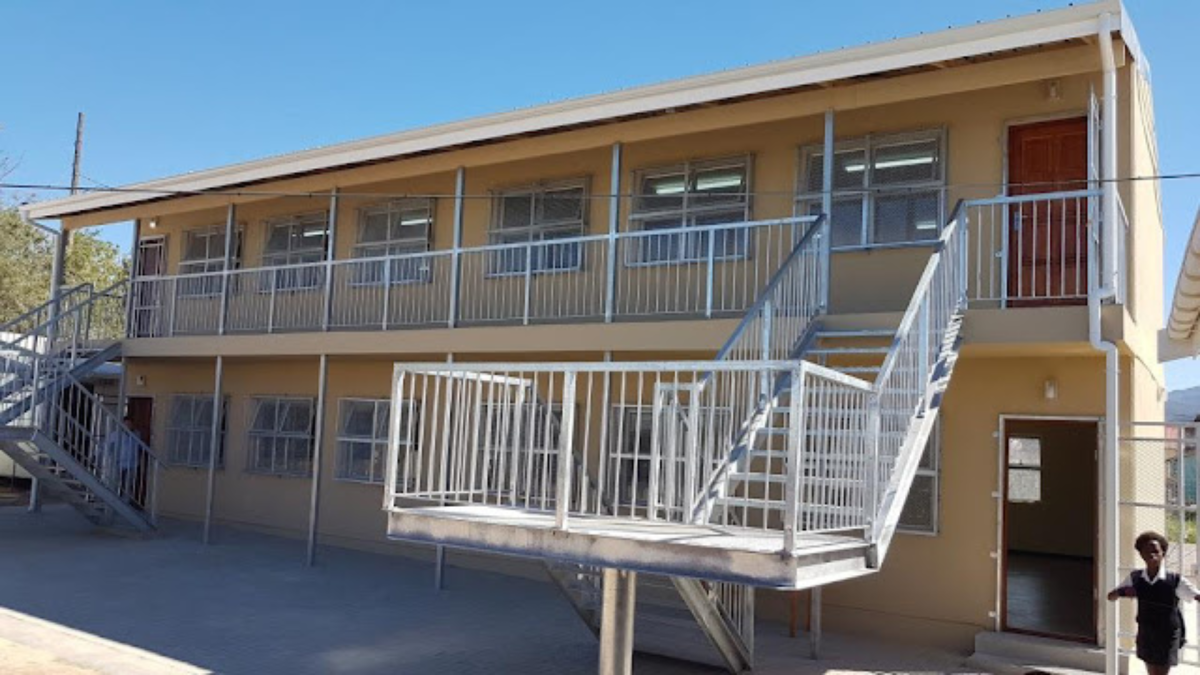
By PR
Moladi Building System’s innovative building method is helping the Western Cape Education Department (WCED) to significantly accelerate the provision of much-needed additional classrooms in the Western Cape.
The company has already constructed more than 230 classrooms on behalf of the WCED for its unprecedented school infrastructure delivery programme. They were completed ahead of the beginning of the 2023 school year in a fraction of the time that it would have taken to build these facilities using other construction methods. The WCED set an ambitious target of completing eight high quality classrooms every day. This would not have been possible using conventional construction methods.
The classrooms are also of a superior quality, considering the high levels of accuracy that are achievable with the Moladi Building System. This eliminates errors that impact the overall quality of final structures. Moreover, walls constructed in this manner are more durable than those that are built from other common materials. With walls of a compressive strength of 15N/mm2, the new classrooms will continue to add value for many years with minimal upkeep.
High levels of accuracy, productivity and efficiency also enable Moladi Building Systems to construct service-delivery infrastructure more cost-effectively. These classrooms are about 30% more cost-effective than those built using traditional methods. There are also no hidden costs as the system provides absolute control over the entire construction process.
Moladi Building Systems has nurtured a strong working relationship with WCED over the years by consistently exceeding the department’s expectations in terms of construction time, cost and, importantly, quality. The previous classrooms that the company built for the department and for the Gauteng Department of Education continue to provide environments that are conducive to learning.
Moladi Building Systems was, therefore, an obvious partner for the WCED’s latest school infrastructure delivery programme, which is the biggest, fastest and most ambitious, to date.
“Once again, we have demonstrated that the Moladi Building System can play a key role in helping to address the growing backlog in essential infrastructure in the country. This includes an acute shortage of schools, especially in the Western Cape which has seen a marked increase in learners as more people migrate to the province. The WCED can be described as a visionary client, setting the precedent for these types of projects. This is in terms of their size; speed at which they are being completed; and the overall quality of the final structures. I believe that this is a model that can be successfully duplicated in other provinces to deliver the quality education infrastructure that we need to take the country forward,” Hennie Botes, Chief Executive Officer of Moladi Building Systems, says.
This innovative way of constructing buildings starts by connecting reusable plastic modules to form lightweight mould panels. They are then fixed into position to create internal and external wall enclosures that form the void or cavity where a cement mortar mix is placed. These panels are positioned on top of engineered raft foundations, suitable for most building designs and especially suited for harsh ground conditions. Thereafter, the engineered steel reinforcing, as well as window and door block outs; conduits for electricity wiring; roof ties; and other fittings are placed and fixed inside the wall cavities. The wall cavities are then filled with a mortar mix, consisting of cement, water, river sand and a Moladi cement admixture. This special admixture aerates the mortar to provide sound thermal and waterproofing properties for the walls. The formwork is removed the following morning after the mortar mix has set. A notably smooth surface finish is achieved, and the walls can, therefore, be painted immediately without the need to plaster. The same mould is then re-assembled on an adjoining foundation and the process is repeated to complete another structure.
An engineer-certified roof, as well as the door and windows are then installed, followed by the final finishings to complete the process. In this way, there is also no waste and duplication of work, which lead to delays and cost overruns.
Importantly, this system is labour based with no mechanisation involved, barring the transportation of the plastic moulds, various construction materials and hardware to site. Therefore, constructing schools and classrooms in this manner creates may jobs for unskilled and semi-skilled communities located within the project footprint. The system, therefore, complements government’s focus on ensuring that its public works programmes create many jobs, as well as opportunities for skills training and development during the construction phases.
A mould for a 74m2 area, which includes door and window block outs for later installation, electrical and plumbing fixtures, reinforcing, roof ties and truss block-outs, can be completed in as little as four hours by 20 unskilled workers. The same number of workers are able to fill the formwork in two hours, and it takes the same time for them to remove the forms the following day. “We need innovation to address the growing backlog for quality schools; decent and affordable housing; and clinics and hospitals, the backbones of the basic human rights enshrined in our constitution. Moladi Building Systems has once again demonstrated that there is a quicker and more cost-effective way of building social infrastructure of an unrivalled quality. Moladi is not an alternative to traditional building methods, but rather a superior building technology,” Botes

